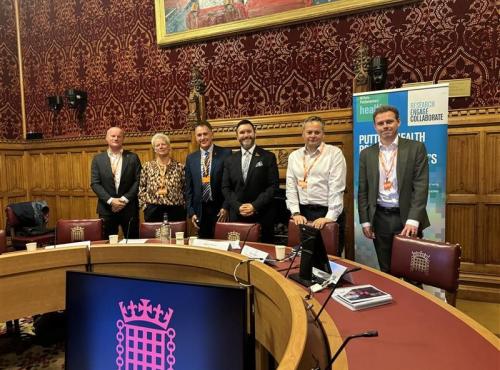The Health and Care Bill Explained
Continuing the APHG’s series of events on the Health and Care Bill this event examined what is in the bill, what the bill aims to achieve and what the reforms mean for health and care commissioners, providers, clinicians, patients and the public.
The Health and Care Bill proposes to reform the structure of the health service by removing the requirement for competition between organisations and formally establishing and promoting integration between primary and secondary care, health and social care and between physical and mental health.
Speakers included:
- Sally Warren, Director of Policy at the King's Fund
- Lord Victor Adebowale, Chair of NHS Confederation
- Cllr David Fothergill, Chair of Community Wellbeing Board, Local Government Association
- Professor Lee-Ann Fenge, University of Bournemouth
The speakers discussed what integrated care looks like in practise at a local level, how the ambitions of the bill can be achieved and how the bill in its current form presents both opportunities and threats to success.
These changes expand on actions that the health service and other organisations were undertaking independently at a local level, and advanced further by the COVID-19 pandemic. The reforms are designed to ensure that legislation works with collaboration and not against it.
However, the bills proposals do not clearly link the changes to improvements in patient access to, experience of and outcomes in their health. The bill also features proposals to hand greater power over the running of the health service to ministers, with concerns over operational independence and delays in changes that may benefit patients and staff. This is just one example of why the bill needs to be better understood and scrutinised in order for its implementation to be successful.
Our speakers and attendees contributed to a very interesting discussion covering the various parts of the health and care bill from legislation and pedagogy to palliative care and connecting with local communities, bringing in examples from Birmingham, West Yorkshire, Lancashire and Cumbria.
Keep an eye out for our upcoming events and follow @HealthAPPG on Twitter to stay up to date with their work.




